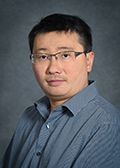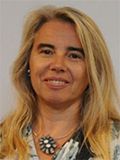Leading Atomic Spectroscopists Receive Awards at European Winter Conference
At the 2017 European Winter Conference on Plasma Spectrochemistry, held in St. Anton, Austria, February 19–24, several awards recognized the work of both young and seasoned atomic spectroscopists.
At the 2017 European Winter Conference on Plasma Spectrochemistry, held in St. Anton, Austria, February 19–24, several awards recognized the work of both young and seasoned atomic spectroscopists. George Chan, Joanna Szpunar, and Johanna Irrgeher all received awards during the opening plenary session.
George Chen

George Chan, a project scientist at Lawrence Berkeley National Laboratory in Berkeley, California, received the inaugural Emerging Leader in Atomic Spectroscopy Award, presented by Spectroscopy magazine. This new annual award recognizes the achievements and aspirations of a talented young atomic spectroscopist, selected by an independent scientific committee. The winner must be within 10 years of receiving his or her highest academic degree. In particular, Chan was recognized for his work on fundamental processes in inductively coupled plasma–mass spectrometry (ICP-MS). One of Chan’s most significant contributions to the field of atomic spectroscopy has been his work on matrix effects and excitation processes in ICP, where he discovered several new phenomena and mechanisms. Chan received his PhD from Indiana University in 2007 under Prof. Gary Hieftje.
Joanna Szpunar

Joanna Szpunar, of the Laboratory of Bioinorganic Analytical and Environmental Chemistry of the French National Scientific Council (CNRS) laboratory in Pau, France, received the European Award for Plasma Spectrochemistry, which is sponsored by Agilent Technologies. This award is given for a single outstanding piece of work or for continued important contributions in the field, and the winner is selected by an independent panel of five prominent European scientists in plasma spectrochemistry and one representative from Agilent. Szpunar received her PhD from the University of Warsaw (Poland), and has been working at the CNRS since 1997. Her research interests concern bioinorganic speciation analysis and hyphenated techniques for metallomics. Szpunar was the chairperson of the Winter Conference on Plasma Spectrochemistry in 2013 and will chair the 2019 meeting as well.
Johanna Irrgeher (Photo credit: Rafaela Proell)

The new European Rising Star Award for Plasma Spectrochemistry was presented to Johanna Irrgeher, of the Institute for Coastal Research at Helmholtz Centre Geesthacht, in Germany. This new award, also sponsored by Agilent, honors outstanding contributions of upcoming younger scientists at the beginning of their careers in the field of plasma spectrochemistry. Irrgeher has contributed important work in isotope-ratio mass spectrometry, an area of increasing significance. She was selected based on her significant fundamental research and novel exciting applications of isotope-ratio MS and her outstanding scientific record.
New Study Reveals Insights into Phenol’s Behavior in Ice
April 16th 2025A new study published in Spectrochimica Acta Part A by Dominik Heger and colleagues at Masaryk University reveals that phenol's photophysical properties change significantly when frozen, potentially enabling its breakdown by sunlight in icy environments.